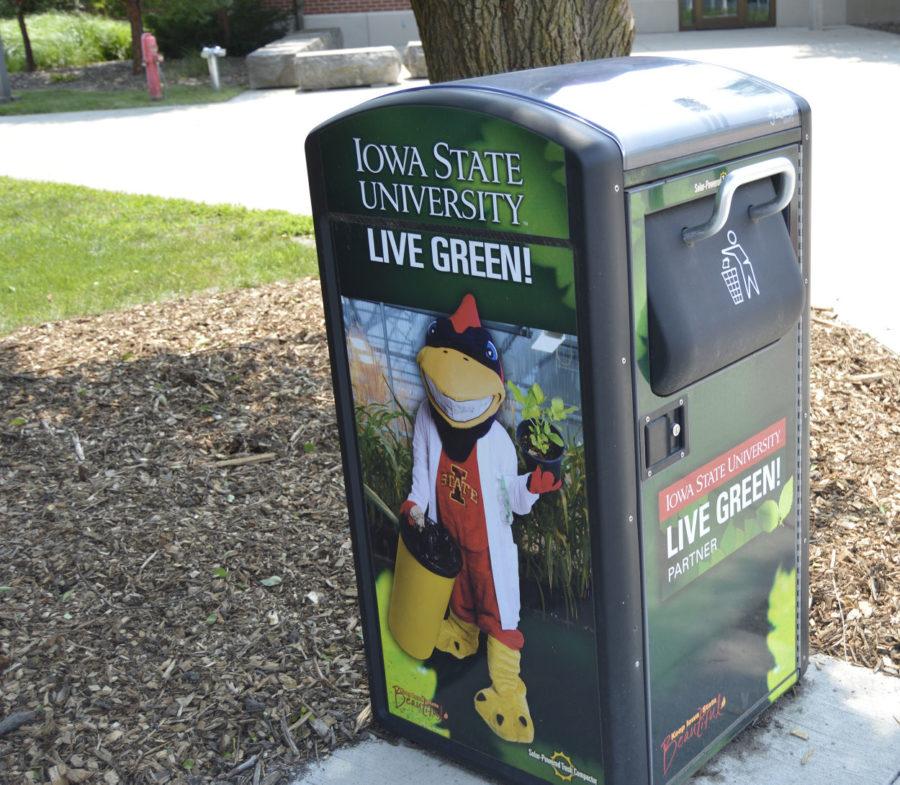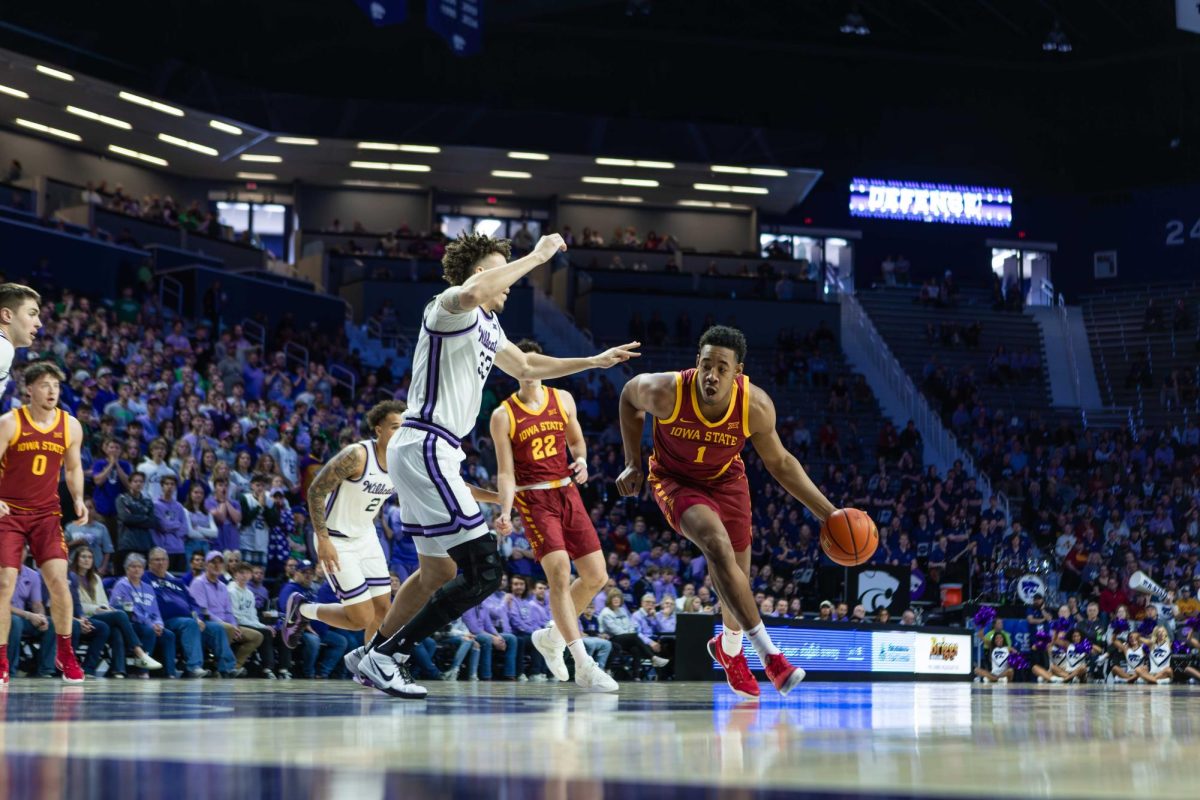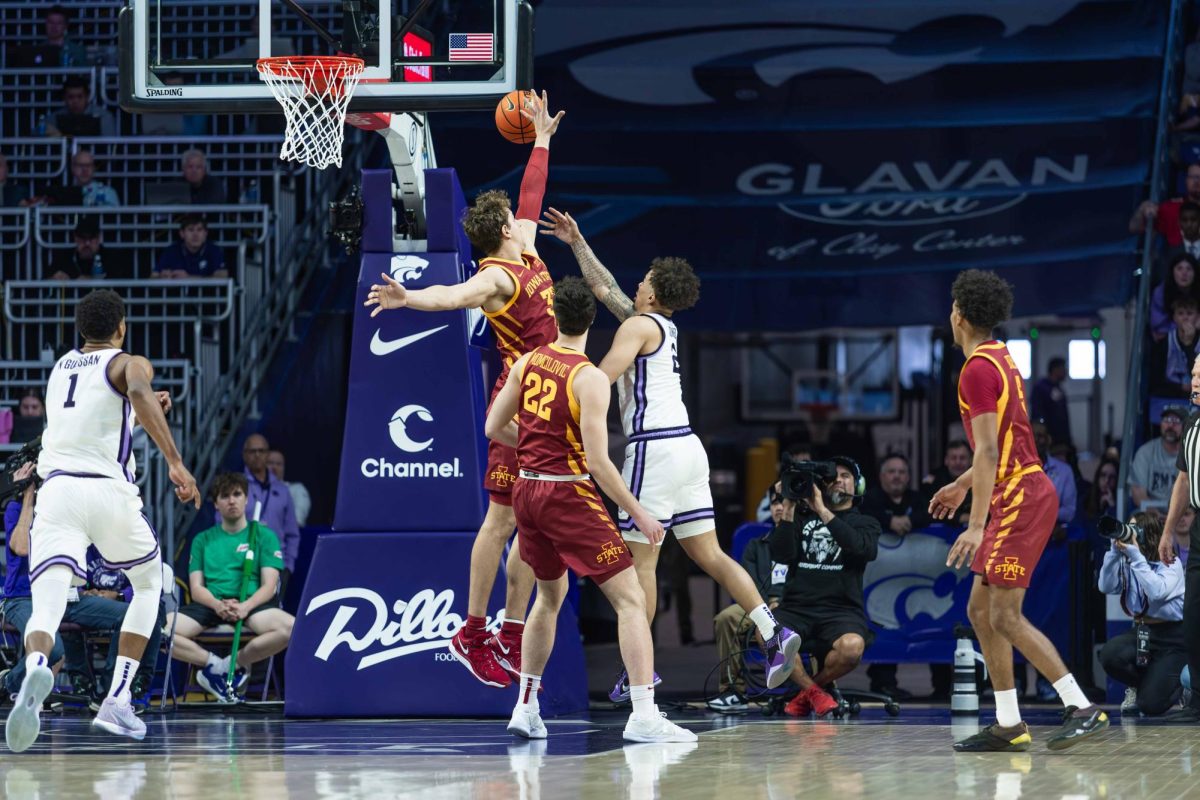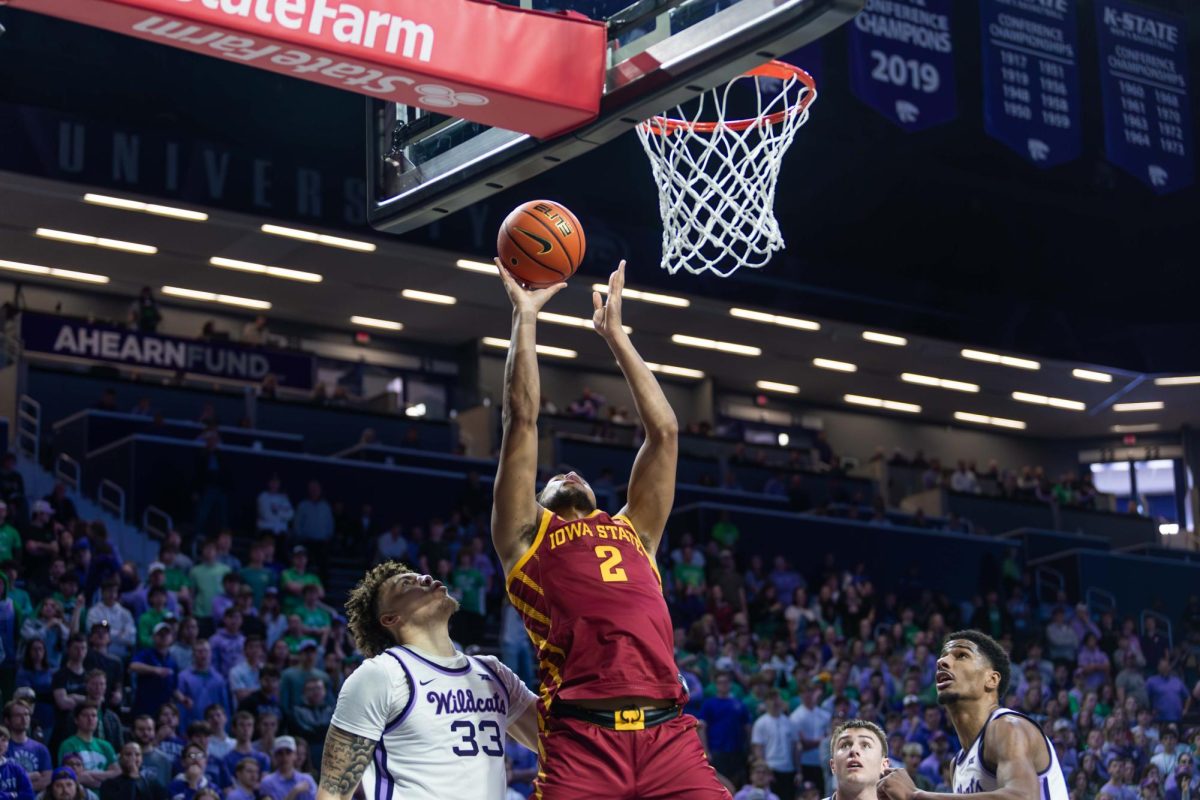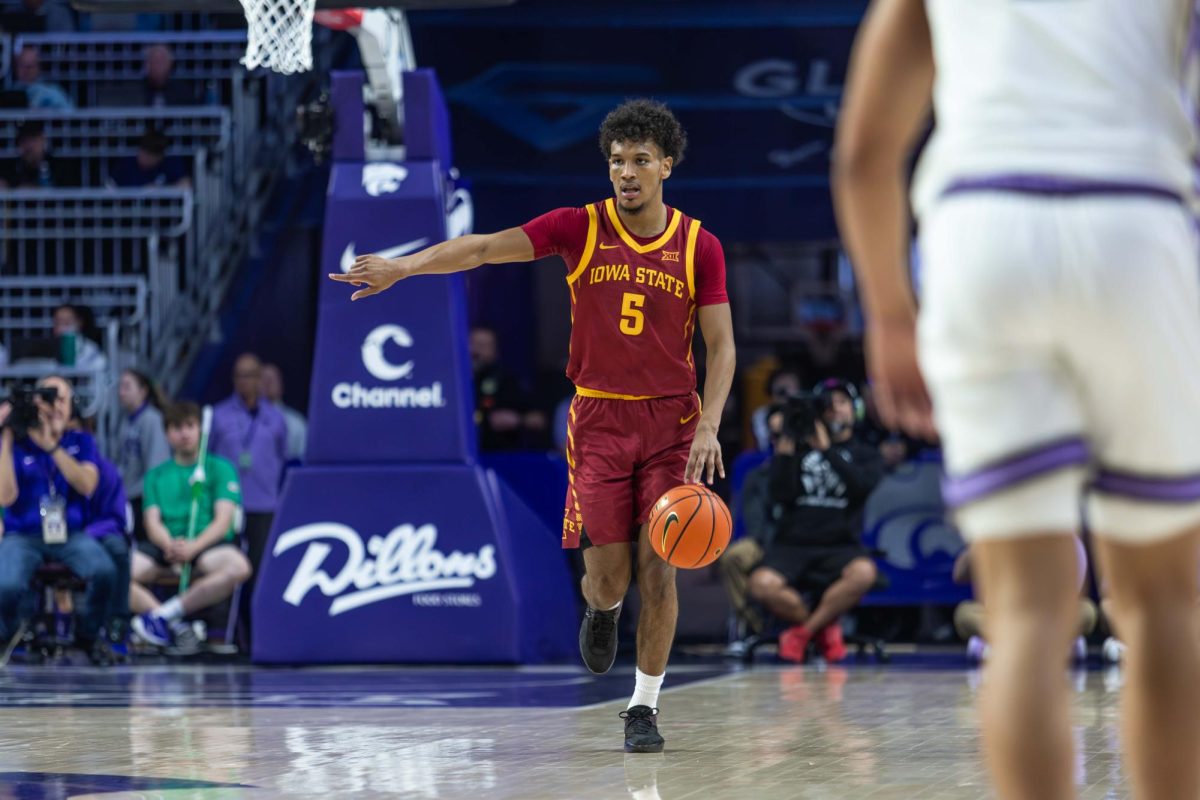Campus Cafes Start Recycling More Materials
September 25, 2015
A new recycling program has started on campus, providing cafés with a way to recycle more materials and providing people with more places to recycle.
“My manager Dan Fincham and I had been talking about a recycling program for a couple years,” said Christy Eischeid, assistant manager of campus cafés. “It had been a concern for a while how much recyclable materials were being thrown in the trash.”
Eischeid contacted Merry Rankin, director of sustainability, last spring and asked if she could help get the program started.
“We heard from students and faculty that they want to be able to recycle more materials,” Rankin said.
The solution to the problem was to introduce new streamlined recycling bins. Streamlined bins allow for metals, glass and plastics to be recycled into one bin, Rankin said. These materials were previously being thrown in the trash, Eischid said.
“Before, I had to sort all of the material in my recycling bin when I took it out to the dumpsters on the docks, but now I can just dump everything into these new bins and not worry about sorting it,” Rankin said.
The bins also allow for the dining centers to clear up space by removing individual bins and replacing them with the streamlined bins.
Eischeid felt that introducing the bins in cafés is an important step to take to help with the Live Green! program that is already on campus. Having the containers be streamlined helps because Iowa State does not have a lot of space within its cafés to place several bins.
Other bins have been placed near the cafés.
“Many café locations are noticing that they are making fewer trips to the dumpster,” Eischeid said. “Froots in State Gym has actually gone from using smaller blue recycling bins to having a big ReCYcling CYte bin placed outside close to the dumpster.”
Rankin said more bins should be able to be placed in the common areas in different buildings around campus, providing people with more opportunities to recycle. By adding more bins around campus more volunteers would be needed to check the bins periodically during the week.
“We have students and student organizations who volunteer to check the bins throughout the week,” Rankin said. “They check the bins, tie the bags and take them to the dumpsters when they are full.”
Rankin said that if people want to see more bins around campus they should contact Student Government Director of Sustainability, Parker Neid to make it possible.
“It’s considerably easier to have a single streamlined container,” Rankin said. “It’s more convenient and frees up space.”
Although the new bins allow for many materials to be recycled together, there are still some materials that can’t be recycled. Styrofoam, plastic silverware and food-contaminated items are a few of the materials that can’t be recycled. Rankin said these materials will still be converted into energy at the power plant.
It is still too early to tell how much waste is being diverted from the trash into the recycling bins, Eischeid said.
“It’s too early for accurate numbers, but [the amount of waste diverted] seems to be quite a bit from some locations,” Eischeid said.


